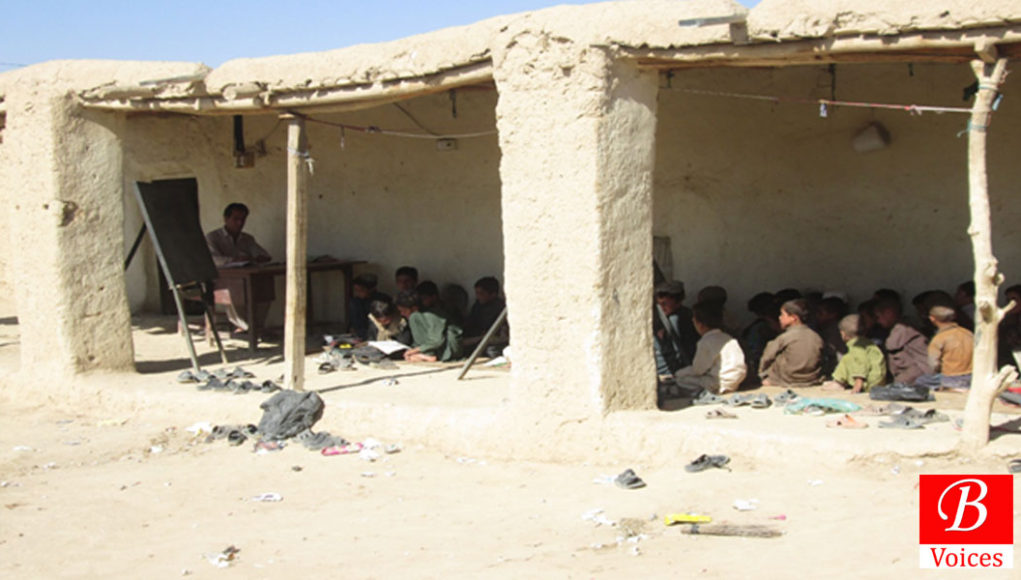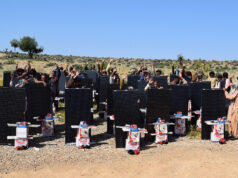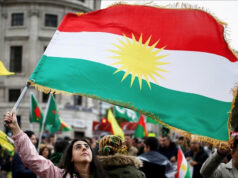Saboor Ahmed Kakar
Eighteenth constitutional amendment committed Pakistan to free and compulsory education for all children between the ages of five and sixteen. And the Balochistan government has already declared an education emergency in the province and enforced article 25-A of the constitution. Yet, more than 60% children are out of school in Balochistan. Majority of people cannot afford private schools besides these schools vary greatly in quality, methodology and teaching techniques.
Education reforms means to address all the above mentioned evils. If Pakistan is to provide all children between five and sixteen free and compulsory education, as its law requires, it must reform a system that produces citizens who are competitive in the job market or can be critical thinkers creating jobs for others.
Balochistan as a whole is bearing this human crisis. But the overview of only one district can help us to understand the drastic state of education in the province.
Loralai is ranked 130 out of the 148 districts of Pakistan according to Alif Ailaan Pakistan District Education Rankings 2015 while it is ranked 22 out of the 32 districts of Balochistan. Almost 89% of the total government schools in the district only cater to the primary level needs. There are 723 government schools out of which 642 are primary level schools. Of the 723 government schools, only 26% of the schools (182 schools) are for girls whereas 74% of the schools (508 schools) are for boys. According to the School Census 2013-14 conducted by Balochistan Education Management Information System (BEMIS) – Directorate of Education, interestingly, at the higher secondary school level there are no schools for boys whereas there is just one higher secondary school for girls in the district. 52% of the total children aged 5 to 16 years are out of school which comes to around 67,781 children. Of all the boys, 38% are out of school. Of all the girls, 67% are out of school. 47% children have never seen the inside of a classroom i.e. they have never been to schools. The net enrolment rate at the primary level is 40%. This drops to 10% at the middle level and is only 1% at the high school level. Net enrolment rate of girls at primary school level is 32% whereas for boys this percentage is higher at 46%. Almost 70% children are enrolled in government schools, 26% students are enrolled in private schools whereas 4% is enrolled in Madrassahs. Of all the girls who enter school, only 4% percent survive till class 5. Of all the boys who enter school, only 8% percent survive till class 5.
Now let’s have overview of quality of education in the district. 75% of class 5 students cannot read a simple story in Urdu (Text of class 2). 64% of class 5 students cannot read a sentence in English (Text of class 2). 70% of class 5 students cannot do class 3 level two digit division. Well off families prefer to send their children in different cities of Punjab particularly Multan and Lahore for education. But here again poverty plays a vital role in keeping children out of school as 72% of the children belonging to the poorest families are out of school whereas only 26% children from the rich households are out of school and middle class families have to get their children educated from these schools who come out with no skill and capabilities.
In loralai, 57% of the schools are not operating in buildings having satisfactory condition. Water, one of the most basic facilities, is not available in 87% schools. 86% schools do not have the facility of a toilet. 72% schools do not have basic facility of electricity. 72% schools do not have a boundary wall. At the primary school level, on average there are just two classrooms in a single school.
Another main issue is that of teacher’s absenteeism. 1,783 teachers are appointed in the 723 government schools. In 69% of the primary schools, only 1 teacher is appointed. On average at the primary level, around 22 students are taught by a single teacher.
Usually every political party has included education reforms in their manifestos. But Pashtunkhwa Milli Awami Party (PMAP) contested general elections of 2013 with the slogan “Every child in school and every teacher in classroom”. They chanted “Education should be free and compulsory guaranteed in 18th amendment of Constitution. We want every teacher in class, every child in school and school in each village”, and people voted them after this slogan and chanting but after completing almost more than half tenure of their being in power, they have not taken any concrete steps. MNA and MPAs of Loralai are reminded about their promises and requested to fulfill them and every meeting ends with political statements, promises and paper work but there is nothing on ground.
Survival and future of Balochistan actually that of Pakistan is only possible through serious and sincere efforts for education reforms. Prime Minister Nawaz Sharif committed in election campaign and international forums to increase education budget to 4% of GDP. The provincial government also should release the development budget for education at the soonest in case if they are really sincere to do something for the people who vote for them.
Writer is an Education activist based in Loralai.
Share your comments!








